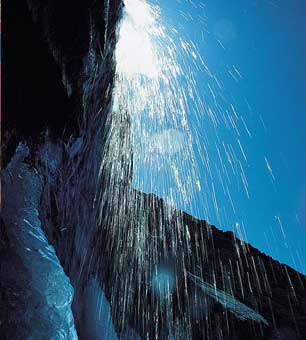The scientists are wrong, but not the way you think.
As global warming picks up, scientists and researchers are finally coming to grips with just how serious that problem is, and how quickly we’re running out of time to solve it.
For example, when it comes to sea level increases, scientists have notoriously underestimated how fast the waters are rising.
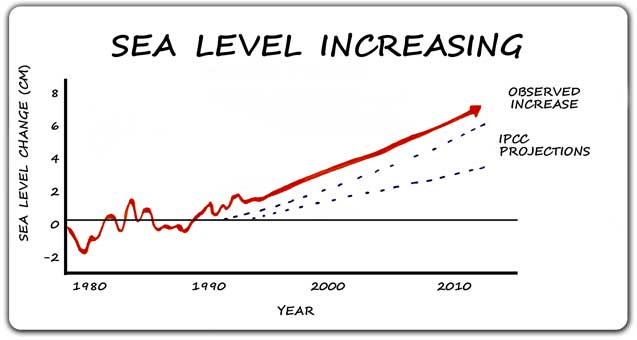
As this chart shows, sea levels are rising much faster than IPCC projections over the last two decades.
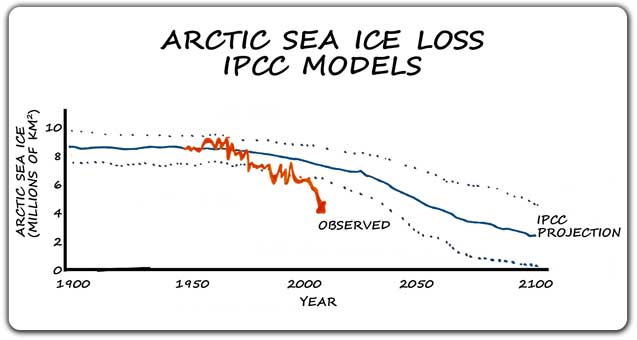
Scientists also underestimated the extent of ice melting in the Arctic. It’s disappearing at a much faster clip than even the direst of projections.
In just a few years, we’ll have our first ice-free Arctic summer in roughly 700,000 years, well before the onset of humanity.
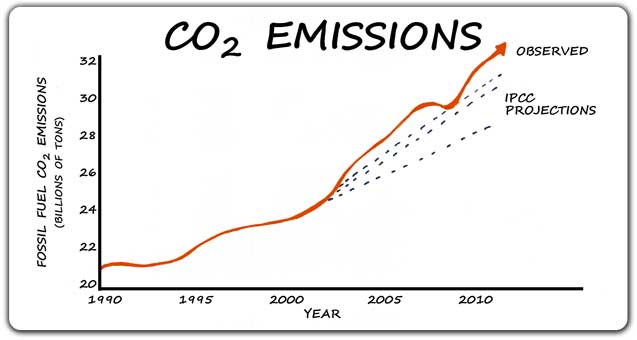
On top of all of that, scientists have also consistently underestimated just how much CO2 we humans are dumping into the atmosphere, again with actual measurements outpacing projections over the last few decades.
So what’s with the history of underestimation?
A team of researchers at the University of Alberta recently published a paper in the journal Global Environmental Change characterizing this dangerous trend of low-balling estimates of global warming.
They note that, “[T]he available evidence suggests that scientists have in fact been conservative in their projections of the impact of climate change…particularly in IPCC assessments of the physical science…[S]cientists are not biased toward alarmism but rather the reverse: toward cautious estimates…We call this tendency ‘erring on the side of least drama.’”
Why is this happening?
It’s simple: When going up against a well-funded, ruthlessly powerful special interest like the fossil fuel industry, scientists know that if they rock the boat too much, they might be targeted and discredited.
Just ask Michael Mann,
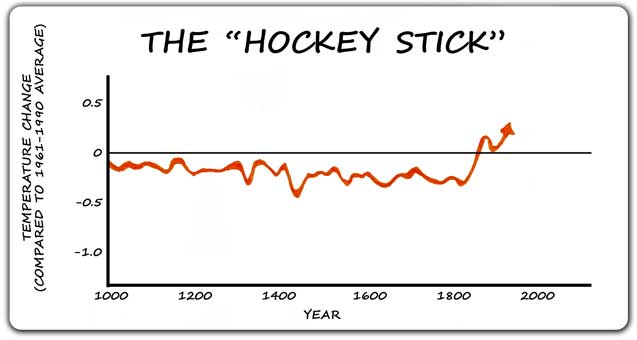
whose infamous “Hockey Stick” chart shows the recent extreme uptick in global temperatures since the Industrial Revolution.
After releasing the “hockey stick” graph, he instantly became the target of smears and was mercilessly attacked by Conservatives and fossil-fuel industry shills.
For far too long, our climate change debate has been focused on not ruffling feathers, on finding economically viable solutions, on depending on the oil companies to lead the energy transition.
That hasn’t worked, and the planet is getting hotter even quicker.
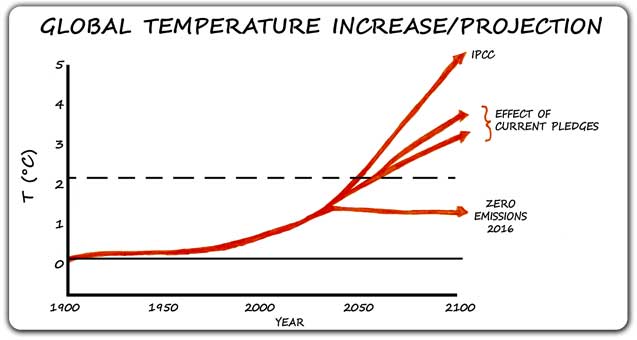
The latest IPCC projection shows at least a 5-degree Celsius temperature increase by 2100, and even if countries around the world reduce carbon emissions, the planet will still warm over 2-degrees, which will have catastrophic consequences for life on Earth.
But, given the history of low projections, the planet could be headed for even warmer temperatures.
Fortunately, over the past year, some scientists have said, “To hell with the right wingers. I’m going to tell the truth even if it does mean they will attack me!”
Now it’s time for the rest of us, and our politicians, to also speak back to the big-money interests who don’t seem to give a damn about planet Earth.
Global warming and global climate change, whatever you call it, is real. It’s caused by us, in large part. And we can stop it, if we act quickly enough. The time for dithering is over. It’s time to act.
Join us in defending the truth before it’s too late
The future of independent journalism is uncertain, and the consequences of losing it are too grave to ignore. To ensure Truthout remains safe, strong, and free, we need to raise $31,000 in the next 48 hours. Every dollar raised goes directly toward the costs of producing news you can trust.
Please give what you can — because by supporting us with a tax-deductible donation, you’re not just preserving a source of news, you’re helping to safeguard what’s left of our democracy.
